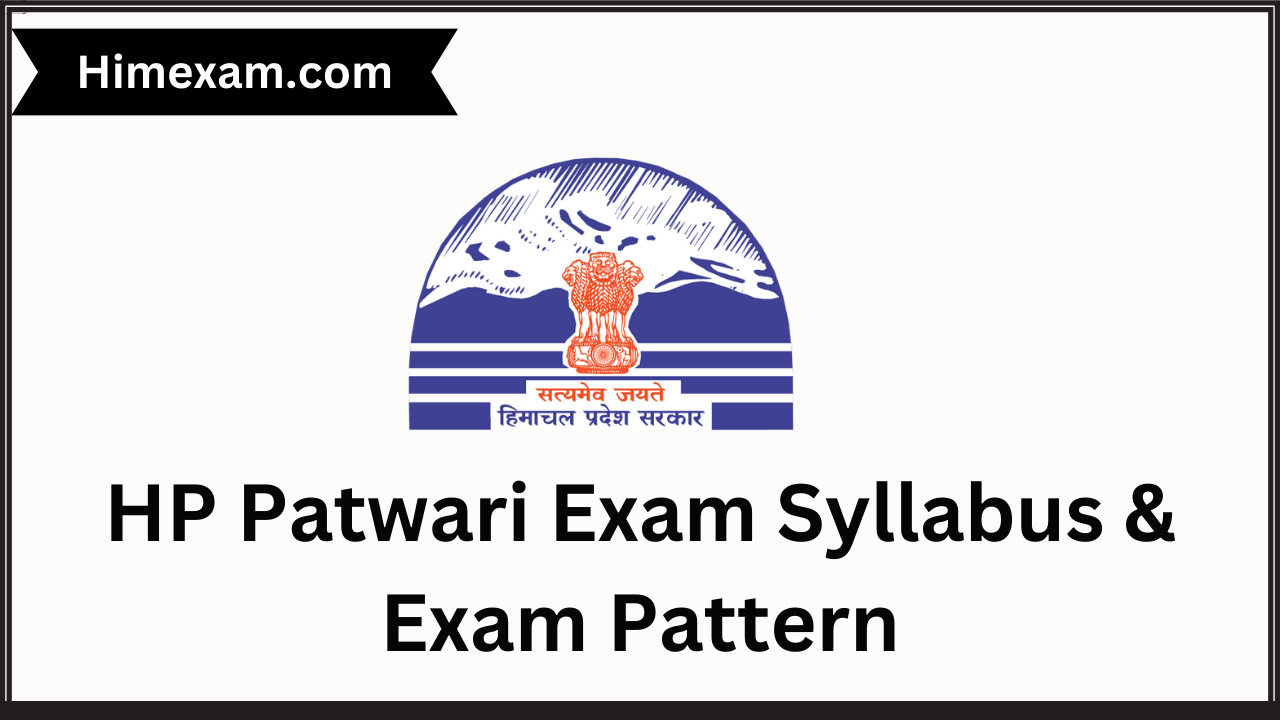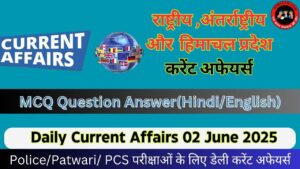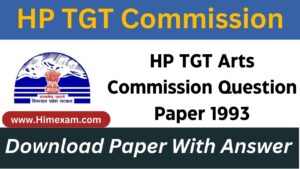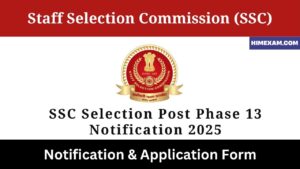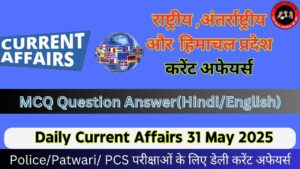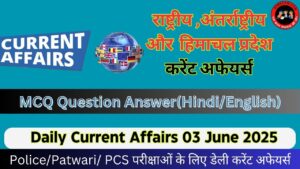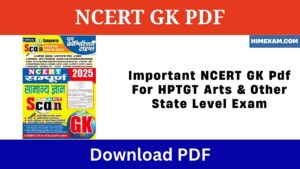HP Patwari Exam Syllabus & Exam Pattern:-HP Patwari Syllabus and Exam Pattern are covered in this Post for the ease of candidates. Check detailed Himachal Pradesh Patwari Syllabus and Exam pattern
HP Patwari Exam Syllabus
HP Patwari Syllabus : Candidates who have applied for HP Patwari Recruitment , must be looking for HP Patwari Syllabus so that they can start their preparation for the online exam. For the candidates willing to work in the government organization, HP Patwari Recruitment is a golden opportunity. Here in this Article, candidates can check out the section-wise HP Patwari Syllabus.
Read More:- HP Patwari Exam Previous Paper
HP Patwari Exam Pattern
The candidates must know the detailed Himachal Pradesh Patwari Exam pattern to get aware of the question paper. The exam pattern is a complete blueprint of the question paper which helps students to plan their preparation strategy to crack the exam. Candidates must check the complete HP Patwari Exam pattern which is explained here in detail:
| Total Question | 100 |
| Time Period | 02 Hours |
HP Patwari Exam Syllabus
| Hindi | 25 Question |
| English | 25 Question |
| GK | 25 Question |
| Aptitude & Reasoning | 25 Question |
| Aptitude & Reasoning |
|---|
| Mathematics: Number systems HCF and LCM Percentages Ratio and proportion Average Time, speed, and distance Time and work Simple and compound interest Profit and loss Algebra Geometry Probability Permutations and combinations Logical Reasoning: Coding and decoding Number series Letter series Analogies Blood relations Direction sense Syllogisms Data sufficiency Seating arrangement Puzzles Verbal Ability: Reading comprehension Sentence completion Sentence correction Synonyms and antonyms Idioms and phrases Spotting errors Vocabulary Analytical Skills: Data interpretation Data analysis Graphs and charts Critical reasoning Problem-solving Abstract Reasoning: Pattern recognition Series completion Shape-based problems Quantitative Aptitude: This is a subcategory of mathematics that focuses on numerical calculations and problem-solving. Inductive Reasoning: Pattern recognition Logical thinking based on examples Visual and Spatial Reasoning: Rotating shapes Mental folding Visualization of 3D objects from 2D representations |
Read More:- How to start HP Patwari Exam preparation?
| English Grammar |
|---|
| Parts of Speech: Nouns Pronouns Verbs Adjectives Adverbs Prepositions Conjunctions Interjections Sentence Structure: Subject and predicate Types of sentences (declarative, interrogative, imperative, exclamatory) Sentence fragments and run-on sentences Tenses: Present, past, and future tenses Perfect tenses Continuous tenses Modifiers: Adjective phrases Adverbial phrases Misplaced modifiers Punctuation: Commas Apostrophes Semicolons and colons Quotation marks Subject-Verb Agreement: Ensuring verbs agree in number with their subjects Articles: Definite and indefinite articles (a, an, the) Conjunctions: Coordinating conjunctions Subordinating conjunctions Relative Clauses: Using “who,” “whom,” “whose,” “which,” and “that” Direct and Indirect Speech: Reporting speech using different tenses and pronoun changes Active and Passive Voice: Forming and converting sentences between active and passive voices Conditional Sentences: Expressing hypothetical situations using different conditional forms (zero, first, second, third conditionals) Modal Verbs: Can, could, may, might, shall, should, will, would, must, etc. Gerunds and Infinitives: Using verb forms as nouns (gerunds) or to express purpose (infinitives) Parallelism: Maintaining consistent grammatical structure within sentences Comparatives and Superlatives: Forming and using comparisons Phrasal Verbs: Verbs combined with prepositions or adverbs to create idiomatic expressions Word Order: Subject-verb-object (SVO) order in sentences |
| Indian GK |
|---|
| Indian History: Ancient civilizations (Indus Valley Civilization, Vedic Period) Medieval history (Mughal Empire, Delhi Sultanate) Modern history (British colonial rule, Indian independence movement) Geography: States and Union Territories of India Major rivers and mountain ranges Important cities and landmarks Indian Constitution and Polity: Preamble and fundamental rights President, Prime Minister, Parliament Judiciary and legal system Economy: Economic reforms and liberalization Major industries and sectors Budget, taxation, and fiscal policies Science and Technology: Achievements in space and nuclear technology Renowned Indian scientists and their contributions Culture and Heritage: Languages and literature Art and architecture (temples, monuments, etc.) Festivals and traditions Famous Personalities: Freedom fighters, leaders, scientists, artists, and other notable individuals Sports: Cricket, field hockey, other traditional and modern sports Renowned Indian athletes Awards and Honors: Bharat Ratna, Padma Awards, National Film Awards, etc. Government Schemes and Initiatives: Swachh Bharat Abhiyan, Make in India, Digital India, etc. Current Affairs: Recent developments, policies, and events in India Wildlife and Environment: National parks, wildlife sanctuaries, endangered species, conservation efforts Indian Mythology and Religion: Hindu mythology, Buddhism, Jainism, Sikhism, etc. Indian Armed Forces: Army, Navy, Air Force Historical battles and conflicts Transport and Infrastructure: Railways, road networks, airports, ports, and bridges Social Issues: Caste system, poverty, education, healthcare, women’s rights, etc. |
| Himachal Pradesh GK |
|---|
| Geography: Location and borders of Himachal Pradesh Major rivers (Beas, Satluj, Yamuna) Mountain ranges (Himalayas, Dhauladhar range) Famous hill stations and tourist destinations History: Ancient history and archaeological sites Princely states and historical rulers Role in the Indian independence movement Culture and Tradition: Languages spoken Traditional festivals and celebrations Folk music, dance, and art forms Flora and Fauna: Biodiversity and wildlife sanctuaries Species unique to the region (e.g., snow leopard) Tourism: Popular tourist spots (Shimla, Manali, Dharamshala, etc.) Adventure tourism (trekking, paragliding, skiing) Economy: Agricultural practices and major crops Cottage industries and handicrafts Tourism as a significant economic contributor Government and Politics: State government structure Chief Minister, Governor Major political parties Education and Institutions: Prominent educational institutions and universities Literacy rate and education initiatives Transport and Infrastructure: Road and rail networks Airports and connectivity Traditional Practices: Local customs, rituals, and beliefs Traditional architecture and building techniques Local Cuisine: Himachali cuisine and famous dishes Environmental Concerns: Conservation efforts and initiatives Impact of tourism on the environment Famous Personalities: Writers, poets, artists, and other notable individuals from Himachal Pradesh Fairs and Festivals: Unique local festivals and their significance Temples and Religious Sites: Important religious places and pilgrimage sites Industries: Hydroelectric power generation Apple cultivation and horticulture |
| Current Affairs |
|---|
| Global Politics and International Relations: International conflicts and resolutions Diplomatic relations between countries Global summits and organizations (United Nations, G7, G20, etc.) Economic Developments: Economic indicators (GDP growth, inflation, unemployment) Trade agreements and disputes Stock market trends Science and Technology: Breakthroughs in research and innovation Space exploration and discoveries Advances in artificial intelligence, biotechnology, etc. Environmental Issues: Climate change initiatives and agreements Natural disasters and their impact Conservation efforts and environmental policies Healthcare and Medicine: Pandemics (e.g., COVID-19) and public health responses Medical advancements and breakthroughs Social and Cultural Trends: Social justice movements Cultural events and festivals Changing societal norms and debates Political Developments: Elections and political transitions Government policies and reforms Major political decisions and their implications Business and Finance: Mergers and acquisitions Entrepreneurial success stories Financial regulations and changes in the business landscape Humanitarian Crises: Refugee situations Humanitarian aid efforts Disasters and relief efforts Cybersecurity and Privacy: Data breaches and cyber threats Privacy regulations and debates Education and Technology: Online learning trends Integration of technology in education Cultural and Entertainment Events: Awards shows Film releases Notable cultural exhibitions Sports: Major sporting events (Olympics, World Cups, etc.) Athlete achievements and controversies Legal and Judicial Matters: Landmark court decisions Legal reforms and debates Social Issues: Gender equality LGBTQ+ rights Racial justice movements |
| Hindi Grammar |
|---|
| वर्णमाला और वर्ण: (Alphabet and Letters) Hindi alphabet (वर्णमाला) Vowels (स्वर) and consonants (व्यंजन) शब्द (Words) Nouns (संज्ञा) Pronouns (सर्वनाम) Adjectives (विशेषण) Verbs (क्रिया) Adverbs (क्रिया-विशेषण) कारक (Cases) Subject (कर्ता) Object (कर्म) Instrumental (करण) Possessive (संबंध) संधि (Compound Words) Swar Sandhi Vyanjan Sandhi वाक्य रचना (Sentence Structure) Subject-Object-Verb (SOV) structure Simple sentences and complex sentences काल (Tenses) Present, past, and future tenses Perfect tenses Continuous tenses संज्ञा के विकारक रूप (Declensions of Nouns) Gender (लिंग) Singular and plural forms Case endings कारक (Case Markers) Using postpositions to indicate cases विशेषण (Adjectives) Agreement with nouns in gender and number सर्वनाम (Pronouns) Personal pronouns Demonstrative pronouns Relative pronouns क्रिया (Verbs) Conjugation of verbs Verb forms for different tenses विराम चिन्ह (Punctuation Marks) Full stop (पूर्ण विराम) Comma (अर्ध विराम) Question mark (प्रश्न विराम) Exclamation mark (उद्गार विराम) क्रिया-विशेषण (Adverbs) Different types of adverbs Modification of verbs, adjectives, and other adverbs अव्यय (Particles) Prepositions (संबंध-अव्यय) Conjunctions (संयोजन-अव्यय) Interjections (उद्गार-अव्यय) अलंकार (Figures of Speech) Simile, metaphor, personification, etc. |
100
25
25
25
2 Hours
More Pages:-
हेलो दोस्तों ,आपका हमारी वेबसाइट Himexam.com पर स्वागत है। जैसा की आपको पता है हमारी वेबसाइट Himexam.com आपको समय-समय पर सभी HP Govt Jobs & All India Govt Jobs की Notifications प्रदान करवाती है। साथ ही साथ Himachal Pradesh Exam Previous Paper और Himachal Pradesh GK ,Himachal Pradesh & National +International Current Affairs के सभी नोट्स मुफ्त उपलब्ध करवाते है। हमारी वेबसाइट के अलग अलग प्लेटफार्म पर pages & Group बने है जैसे की facebook ,Telegram और Instagram .. अगर आप हिमाचल के किसी भी पेपर की तैयारी कर रहे हो तो जल्दी से इन groups के साथ जुड़ जाएं इनके लिंक नीचे table में दिए गए है।
Join Us:-
| Like Our Facebook Page | Click here |
| Join Us oN Telegram | Click here |
| Join Us On Instagram | Click Here |

